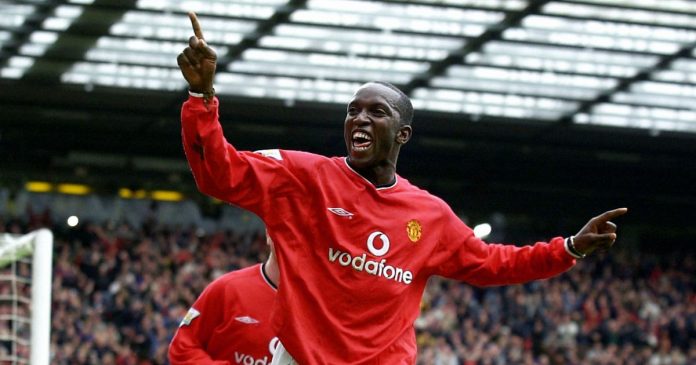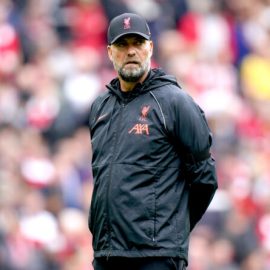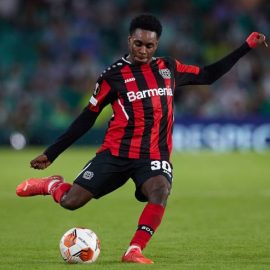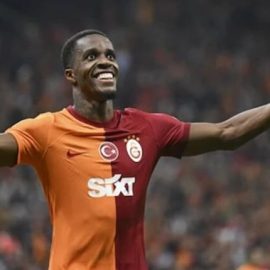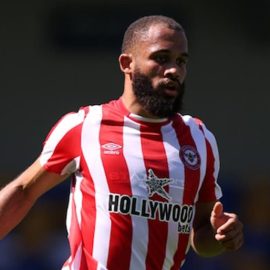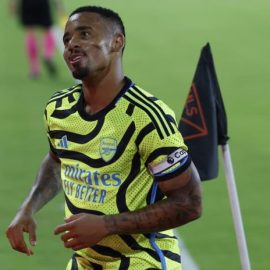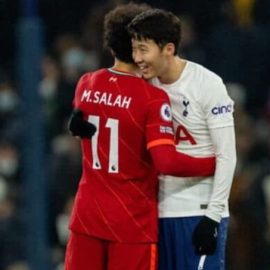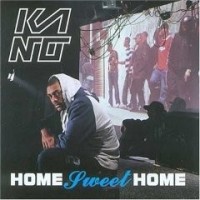 “See I was supposed to be a footballer
“See I was supposed to be a footballer
but they kept pickin’ the other kid
who was a foot taller
I got lazy and less enthusiastic
I stopped trainin’ and turning up to matches
started sabotaging the manager’s tactics
but when I did play I used to score hat-tricks
then I gave up
now I’m in the music biz
and I wont ever let my laziness ruin this” (Kano — 9 to 5)
“I appreciate football because without football I wouldn’t have anything else” (Ince, interview with The Independent, 1998)
“I love tackling, love it. It’s better than sex”
(Ince in an interview from England’s World Cup training camp in France 1998)
In my article on Tony Mowbray, I noted that certain images of the West Brom manager during his ‘Boro days have crystallized in time to encapsulate a certain experience of the triumph of a working class club when sailing through rocky economic seas. Paul Ince is another such figure: more than a player, Ince is an icon. And it is indeed this iconic status that can be found both at the source of Ince’s considerable success and the root of the series of outlandish faux-pas that have plagued his career.
Ince’s story, like that of a number of footballers, presents an alternating amalgam of free-fall and tragic resistance in the face of significant social and economical adversity; his plot is that of the Hollywood protagonist teeter-tottering between good and evil and ending up going in for both.
.
 Early Life
Early Life
Born in Ilford, which was incidentally also the breeding ground of Naseem Hamed, Ince’s father left when the future Manchester United star was just 2, and this was followed eight years later by the departure of his mother to Germany. Paul, at this time without the “Guv’nor” appendix, was forced to move in with his aunt in Dagenham, and, despite being spotted by West Ham coach John Lyall at the age of 12, a move into football and the signing of YTS forms at 14 was not enough to shelter Ince from the possible nefariousness of outside influences.
As Ince recounts:
“I grew up in a two-bedroom council flat with my mum, brother, sister, cousins and aunties […] I shared a bedroom with my brother, sister and cousin. But I didn’t see it as poor; it was just the way it was. I had to fend for myself from a very young age”
.
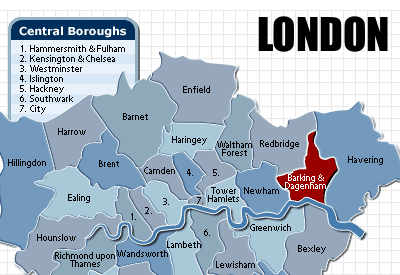
However, thanks to a mighty dollop of grit and determination — we are talking, of course, about a man who elected himself the ‘Guv’nor‘ on the football pitch — Ince was able to conquer his demons and progress as a footballer.
.
 Professional Debut for WHU
Professional Debut for WHU
At the age of 19, Ince made his debut for the West Ham United first-team, and a series of excellent performances over the next couple of seasons, including two stand-out showings against Liverpool in the Cup — the first coming in 1986, a 1-0 victory in which Ince bossed the midfield, and the second in 1988, when two stunning goals and a domineering all-round performance saw Ince and the Hammers destroy then League Cup holders 4-1 — had many big clubs, including Liverpool, casting their greedy eyes over Ince as a potential signing.
Ince’s signature was, in the words of Stephen Orford, “one of the most highly sought after of the era“. The subsequent cup run, inspired in no small part by Ince’s performances, would come to end with a semi-final defeat to eventual winners Luton Town, and the long-awaited upturn in West Ham’s league form was never to materialize; the club were relegated at the end of the season, and coach John Lyall was out on his ass after 15 years at the helm.
The sacking of Lyall, the man who had brought Ince to West Ham and given him his chance in the first-team, was the catalyst for the transfer that would make Ince one of the most hated men in East London. Prior to Lyall’s departure, Ince had negotiated a new contract of £1,100 a week with the Hammers hierarchy, counting upon the increased salary in order to move his wife and family out of his Dagenham house, where local youths were vandalizing his car; slashing the tires and smashing the windows. However, new incumbent Lou Macari refused to ratify the wage hike, telling Ince that the figure agreed upon was far too much for a young player to be earning. It was this betrayal, as perceived by a player with full confidence in his worth, on the part of the club that would lead Ince to perpetrate an act of treason much more grave, turning his back on the club and in the process turning adulation to abhorrence and love to hate in the hearts of fans of that very same Academy of Football out of which Ince had sprung.
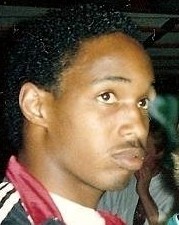
West Ham fans quickly bought up the hype, and Ince was suddenly a treacherous outlaw, as unpopular as a picture Fat Frank chomping on a donut displayed on a giant screen at Upton Park. With Ince left in limbo in London, Alex Ferguson (then sir-less) personally resurrected the £1 million deal, and Ince’s transfer was completed not long after, thus drawing to a close the first chapter in a colourful career.
The explanation for the photos of Ince in the Manchester United strip is actually rather simple, and is recounted with characteristic bluntness and eloquence by the man himself in an interview with Four Four Two:
Man United then became interested, so I spoke to Alex Ferguson and the deal was close to being done. I then went on holiday, and my agent at the time, Ambrose Mendy, said it wasn’t worth me coming back to do a picture in a United shirt when the deal was completed, so I should do one before I left. This would be released when the deal was announced. Lawrence Luster of the Star took the picture and put it in his library. Soon after, their sister paper the Express were looking for a picture of me playing for West Ham, and found the one of me in the United shirt at the bottom of the pile. They published it and all hell broke loose.
I came back from holiday to discover West Ham fans were going mad. It wasn’t really my fault. I was only a kid, I did what my agent told me to do, then took all the crap for it. The most annoying thing was Luster never had the balls to come out and say what had actually happened. He has killed me. If I ever see him again I’ll give him a good hiding.
I went up to United, but then failed the medical, so I had to return to West Ham. I sat on the bench for a couple of games, but my wife was getting stick in the stands, so I thought, nah, I’m not having this! Alex Ferguson got in touch to tell me that he was resurrecting the deal and that he’d look after me. I have to thank him for that. That is the story, but God, all the crap I get from West Ham fans!
If you think about all those fans at Upton Park, they must have made a mistake and been forgiven. What do they get at games? About 25,000? I bet about 10,000 of the men have been unfaithful and asked for forgiveness from their wife. You have to forgive and forget. When I played for England against Italy in Rome, when we qualified for the 1998 World Cup, West Ham fans were probably standing by the bar saying, “There’s our boy from the East End”, but as soon as I came back I was still a Judas. I’ve held my hands up and told you the story as it happened.
When all is said and done, I still consider myself a West Ham boy. That is where I come from. That will never change. I probably still have more affection for the club than any other.
.
.
 At The Court of King Ferguson
At The Court of King Ferguson
After leaving behind his spiritual homeland of East London, Ince’s career followed only one trajectory: up, up, up! A key part of the Manchester United midfield of the early ’90s, and captaining the team of a number of occasions, Ince, playing alongside such luminaries as Ryan Giggs, Eric Cantona and Andrei Kanchelskis, won every domestic honour in the game during his tenure up north; first came the FA Cup in 1990, then the League Cup in 1992, and finally, the League Championship in 1993, ending United’s 26-year wait for a league title in the year of the Premier League’s inception. The European Cup Winner’s Cup was also added with victory over Barcelona in Rotterdam in 1991. In 1994, the club won the first of Fergie’s magnificent league and cup doubles.
Ince was, for a while, the incarnation of Ferguson’s reformed United: hungry, snarling, enthusiastic, energetic, ambitious, fiery, and forming together with Roy Keane (who joined in 1993) one of the most frightening midfield tandems in English football history, a pair of tacklers ferocious and motivated enough to make a WWE wrestler squeam. Ince’s form did not go unnoticed at national level, being called up to the senior England squad for the first time during his stay at Old Trafford, and retaining his place for some years to come. It was also during his time at Liverpool that Ince became the first black man ever to captain the English national team, a feat of which he is immensely proud.
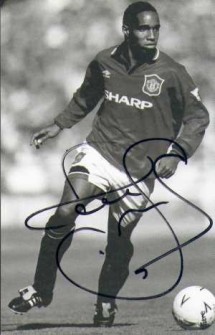
The “official” story of Ince’s exit reads that Ferguson had concluded that his former captain was surplus to requirements due to the emergence of a trio of young midfielders from the academy, who went by the names of Nicky Butt, Paul Scholes, and David Beckham. Whilst this version is undoubtedly creditable, it would be fair to say that it is a somewhat selective interpretation of events. In actual fact, the quick-fire departure of Paul Ince signalled the first of a series of run-ins Alex Ferguson would have, and continues to have, with his more personable players, and the way in which the row was dealt by Fergie prefigured the brutality shown in the sale of the likes of Stam, Beckham, Van Nistelrooy, and others.
Ince left not with the blessing of the Old Trafford faithful, but instead branded a “Big Time Charlie” by a Ferguson who claimed that the midfielder thought too highly of himself and put himself above the team; the tag stuck like superglue, and the tragic consequence was that Ince was again immortalized for a supposed attitude problem off-the-pitch instead of being remembered for his exceptional exploits on it.
.
 Bye Bye England, Ciao Italia!
Bye Bye England, Ciao Italia!
And so, from the tropical climes of Manchester, Ince the “Big Time Charlie” headed to the stars and stripes, the Nerazzurri, the multinational phenomenon that was Football Club Internazionale Milano, then managed by Roy Hodgson. One of few English players to take any credit from time spent in Serie A, Ince’s two years at Inter, although of absolutely no note in terms of trophy haul, were supremely successful on a personal and professional level. An Inter crowd that had initially shown a mild scepticism towards Ince was soon cooing to the Ince tune, won over by the England man’s complete commitment and all-action style, as well as that continued knack to pop up with vital match-winning goals. In his first season, Ince played in all but four of the club’s league fixtures, and this set him up nicely for Euro 1996. His time at Inter also made him a better player, with the ever-present speed and tackling ability complemented by a newfound two-footedness born of the player’s desperation not to be humiliated amongst his technically superior team-mates.
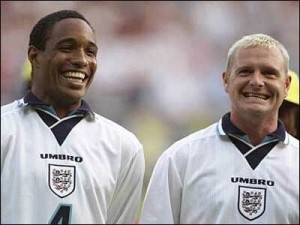
1997 was a better year for Inter, and Ince had a significant part to play in this rejuvenation. As well as finishing 3rd in the race for the Scudetto, Inter reached the UEFA Cup Final, with Ince scoring an important goal against Boavista in the second-round. However, penalties again proved Ince’s undoing, as his side succumbed to a 4-1 penalty defeat against Schalke, and Ince and Inter again finished the season empty-handed.
.
 From San Siro to Anfield Road
From San Siro to Anfield Road
Despite being offered a new and improved contract by Inter supremo Massimo Moratti, Ince decided to return to England in 1998, primarily so that his son Thomas could attend an English school. And ironically, it was to Liverpool, the team against whom he had performed so admirably at West Ham, and Manchester United’s arch-rivals, that Ince now deserted. Ince added his name to the amputated handful (2) who have played for both clubs, and is surely the only player to have captained both of the deadly rivals; indeed, news of the move brought more than a few mischievous whistleblowers to claim that Liverpool had been Ince’s choice as he had been keen to find a way to kick Ferguson in the teeth, so to speak, something he would later accomplish when scoring in a 2-2 draw against United at Anfield. The transfer to Liverpool was not a popular one with either set of fans, and leaves Ince with the curious, unenviable and almost unique accolade of being able to return to nearly all of his former clubs and receive a frosty, or downright hostile reception and at least a minority chorus of boos and jeers: some record indeed.
Courter of controversy and frozen in time by a series of biased snapshots, Ince’s memory has been obscured by this “larger than life” status. An anecdote from Jamie Redknapp perhaps best illustrates Ince’s love-him or hate-him status and slightly conceited personality:
“We used to tease him about his nickname. He said he didn’t like it but when I first played against him, it was on his car number plate.
He cultivated the image, although really it was all a front, something he used as a weapon against the opposition.
I’ve seen teams shrink in the tunnel as Incey would walk along from the dressing room, playing up to it — chest exposed, muscles tenses.
He had a terrific physique, which is remarkable given that he was prone to scoffing McDonald’s and Kentucky Fried Chicken.
The whole ground would be waiting for him and he’d be last out, shirt in his hands, naked chest out. ‘I’m here, now the game can begin…'”
.
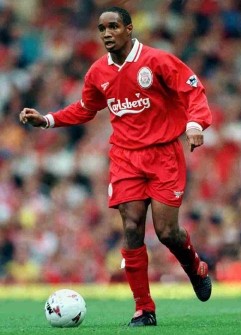
On the other hand, like so many others, Ince failed to live up to his tag of the Pool’s “missing link” (he is in good company there), and the Reds’ pursuit of the League Title, or indeed of any other trophy, continued to be fruitless. This failure in major competitions ran over into World Cup 1998, where for the third time running, Ince’s heart was broken by a penalty shoot-out; although on this occasion, Ince did in fact take a spot-kick in England’s second round loss to Argentina, his somewhat tame effort saved by Carlos Roa. What’s more, the over-exuberance of the “Spice Boys”, whilst refreshing for fans and pundits alike, did not necessarily reflect too well on Ince’s contribution, calling into question both his performance on the pitch, and his ability to effectively martial the team; it is said that Ince’s fate as dispensable was sealed when, in a reserve match, he was nutmegged by a young rookie, a sparky central midfielder who proceeded to dominate proceedings. That rookie’s name? Steven Gerrard.
.
 From Stev-O to Boro
From Stev-O to Boro
After leaving Anfield, Ince moved on to what could essentially have been labelled the “Old Englanders Retirement Club”, or so it seemed. I’m talking about a Middlesbrough side managed by Ince’s former team-mate Bryan Robson, who was later joined in the dugout by ex-England boss Terry Venables, and contained the likes of namesakes and once England colleagues Paul Merson and Paul Gascoigne.
Once more taking on the responsibilities as skipper, Ince performed admirably, making over 100 steady and committed appearances for a team primarily founded on the principles of flair and entertainment, always happy to do his talking on the pitch and let Juninho shine in his shadow, and helping ‘Boro to maintain their previously fragile Premiership status. What’s more, Ince again managed to have the last word over his detractors, as within a month of moving to the Riverside, he put in a Man-of-the-Match performance against Gérard Houllier’s Liverpool to give the Yorkshire side a 1-0 victory.
.
 The Call of the Wild: Wolves
The Call of the Wild: Wolves
Next stop was Wolverhampton Wanderers in 2002, where for the first time in his career Ince played outside of the top-flight on a regular basis (he had made one appearance in the Second Division for West Ham). However, never one to shirk a challenge, and certainly not about to be phased by a drop down in division, Ince catalyzed the Wolves team and, playing in 29 of the club’s 38 league matches, inspired Dave Jones‘ side to promotion to the Premiership.
Although they were relegated immediately, Ince continued to play an important role as the fulcrum around which Wolves’ game was built, and garnered much respect from the fans and fellow players alike for his perseverance and dedication, in counterpoint to his advancing years, especially since he had already prolonged his retirement in 2004 following a talk with journeyman Teddy Sheringham. The high stead in which Ince was held at Wolves, where he was known to periodically up his energy levels and charge at opposition players like a rampant bull, or an angry Wayne Rooney, can be summed up in this quotation taken from a Wolves fanzine:
“When he was with Wolves he ran his socks off and tried harder than any other player on the field […] his efforts and his tackles go to another level”
.
.
Trading Football Boots for Manager Vest
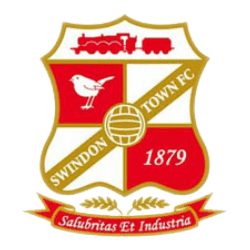
By this time, however, Ince had had his first taste of management, and was hungry for more. Taking advantage of his close friendship with Dennis Wise, Ince took up a player-coaching role at Swindon Town in 2006, although he bizarrely played just two games before hanging up his boots, claiming that he could not devote himself adequately to both roles. Ince stayed on at Swindon, nevertheless, in a non-playing capacity in order to obtain the requisite coaching badges, and with his coaching qualifications safely under his belt, began to prowl more and more actively for management positions, whilst completing the LMA Certificate of Applied Management funded by the PFA.
.
League Two Management
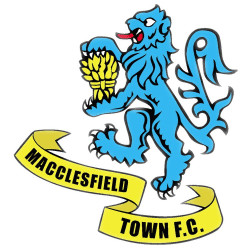
Managing at a League Two club proved quite a culture shock for Ince, a man accustomed to playing for some of the biggest clubs around the globe and making headlines on a weekly, or daily basis. The new gaffer expressed his surprise at the cost-cutting measures in place — instead of having a team of delegates disposed to take care of all of the nitty gritty and administrative work, Ince found himself having to answer mail from potential triallists and scouting players himself — and this surprise later turned to anger at the lack of media exposure received by lower-league clubs, when the news that four of his players had broken their legs within the space of just three weeks, including a freak collision between goalkeeper Jonathan Brain and defender Andrew Teague, was only sparsely reported in the mainstream media.
“What annoys me more than anything is that this story, more of a tragedy, has cost me four main players, four players who are really important to me, and yet because we’re in the lower leagues, it’s like nobody cares. There’s been no get well messages sent by any of the bigger clubs. You can guarantee that if it had been Chelsea or anyone like that it would have been on the news every bloody day, but because it’s Macclesfield, nobody cares, and I find that hard to take sometimes”
“The admin stuff is long, something I’ve not really been used to […] When you go to a big club they’ve got so many people to delegate things; here […] you have to do them. But that’s partly just becoming a manager — as a player you’re usually home by half one, and on a golf course by two o’ clock”
.
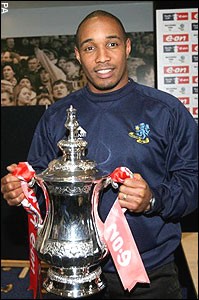
The confidence inculcated in the team by Ince — he confidently remarked when taking the job that “I could see something in the players” and denied the need to seek help from any one of his more experienced ex-team-mates, “I haven’t seen any need to call them […] I feel that we’re progressing” — soon transformed the club’s fortunes, and a nine game unbeaten streak in league and cup took The Silkmen away from relegation danger and into a glamour 3rd-round FA Cup tie with holders Chelsea. No cup magic was produced, however, as Macclesfield were duly slaughtered 6-1, in part due to the questionable sending-off of goalkeeper Tommy Lee early on in the game. Although a late slide nearly plunged Ince and Macclesfield back into the relegation dogpit, a draw with Notts County in the club’s last game of the season was sufficient to secure the Silkmen’s League status for another year, and Ince took many plaudits for his Houdini-like rescue job, which allowed him to
“Stick two fingers up at the people who questioned my sanity and my abilities”
.
Ince admits that taking the job was a risk and that he was the one with a reputation on the line, but the gamble paid off, and in this humble writer’s view, for Ince failure was never really on the cards.
.
MK Dons

Despite continued hearsay surrounding his future, and the reported interest in his services of Derby County, Wigan Athletic, and a number of Championship clubs, Paul Ince has repeatedly affirmed his desire to fulfil his contract at Stadium:mk, and for the man who had a career full of tumult, a couple of years or more of stability and the thrill of a long-term project in Milton Keynes might be just what the doctor ordered.
.
Style of Play
“A lot of clubs at this level think the only way to get out of a position like this is to kick your way out of it. We’re going to try to play. That’s what I’ve always been used to, and that’s what the boys can do”
.
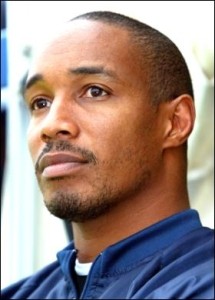
Although Macclesfield’s escape from relegation last season did not produce scintillating football on the scale of Arsenal or Barcelona, it was easier on the eye than would be expected from a club in a relegation scrap at the bottom of the Football League. Equally, whilst MK Dons are by no means the top scorers in League Two this campaign, their game is founded upon short, mixed passing, in the mould of Dario Gradi’s Crewe, for whom Ince expressed masses of admiration before the two teams met in November’s FA Cup tie. Though the Dons eventually ran out 2-1 losers, the two combined to produce an open and attractive game that was a credit to the Football League.
The football on offer, as well as the promise of promotion, has led to a huge increase in gates attendance at Stadium:mk, with a new bunch of local fans starting to mobilize around the club and a good 8,500 often attending games. The Dons’ 25,000 tickets to Wembley for the Johnstone’s Paint Trophy were reportedly sold out within hours.
.
Transfers and Management Style
The contrast between Paul Ince the player (Guv’nor) — arrogant, forever haranguing the reserve players, swearing at team-mates, always up for the first tackle and delighting in the crunch of jaunty bones — and Paul Ince the manager (Governor) could hardly be more marked. About the only thing that remains undeterred is Ince’s fierce desire to win; otherwise, gone is the stubborn combativeness, replaced with a cool and collected manner, a self-effacing humility, and a faith in players, and indeed in human beings, that suggests a significant maturational process on the part of the ex-United captain.
“Getting the best out of players is about caring about them as individuals […] You have to be a father, a mentor, a role model and a motivator. If they can see that you are on their side, they will go the extra mile”
.
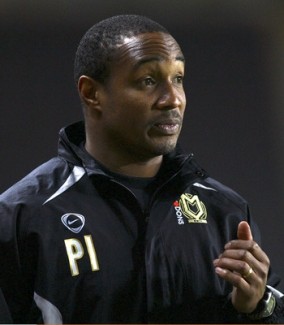
Macclesfield’s recovery was in large part down to the efforts of the players who were already at the club prior to Ince’s arrival, although a special mention should go to John Murphy, Adam Murray, Ashan Holgate and Simon Wiles, all of whom proved useful and reliable signings for the Silkmen, especially during their injury crises. Ince deposited a reservoir of faith in his stooges at Moss Rose, and this is poignantly demonstrated by the fact that several of his former charges have now joined Ince at Milton Keynes: including John Miles, Alan Navarro and Danny Swailes, with the latter two having a big role to play in the season’s success up to this point.
With a relative bounty of funds to choose from this summer, Paul Ince has shopped extremely well, bringing to Milton Keynes a mix of youthful enthusiasm and experienced and reliable performers. Goalkeeper Willy Gueret, signed from Swansea in the summer, has performed ably and reliably whenever called upon, and indeed his excellent showing in the Johnston’s Paint Trophy semi-final against Swansea was enough to prompt Ince to state that the Welsh club had made a huge gaffe in letting the Frenchman go. In central defence, the additions of the vastly experienced Drissa Diallo and Sean O’Hanlon, both of whom have played the majority of the Dons games, have helped stabilize last season’s leaky backline, and MK have the second best defensive record in the division, behind only Dave Penney’s Darlington.
Mark Wright, who was a vital part of Walsall’s League Two-winning side last season, has added badly-needed consistency, trickery, and experience — he has just gone through a promotion-winning season — to the Dons midfield line. The club pulled off a real coup to sign Colin Cameron (who played with Ince at Wolves) to complement Wright, with Cameron a former international and a multi-million pound player earlier in his career; a further steal came with the free transfer of ex-Blackburn and Manchester United forward Jemal Johnson, whose lightning pace has started many an attack, whilst up front QPR legend Kevin Gallen, Ince’s first signing for the club, has added experience, teamwork, and a few vital goals here and there.
.
Achievements
Manager of the month, Coca-Cola Football League Two, Macclesfield (December 2006)
Manager of the month, Coca-Cola Football League Two, MK Dons (October 2007, January 2008)
.
Managerial Statistics
.
|
Team |
From |
To |
Games |
Won |
Lost |
Tied |
|
|
Present |
45 |
27 |
10 |
8 |
|
|
|
|
35 |
14 |
13 |
8 |
Statistics provided by Soccerbase
.
Future — Every Ince a Premiership Manager
Meanwhile, as far as the long-term has been concerned, Ince’s ambitions remain as lofty as ever: to manage every club he played for, and to become the first ever black England manager.
As Ince rightly puts it:
“Why not? Life has taught me that if you’re determined enough you can achieve anything […] Racism prevented a lot of extremely talented black people from getting involved in football, but it inspired me to change people’s attitudes. Captaining my country was the proudest moment of my career, but it was somewhat overshadowed by the issue that I was the first black player to do so […] What I achieved encouraged black kids to play the game and chase the same dreams that I had fulfilled, and that is my biggest achievement in football”
.
As for the Old Trafford Royal Rumble, ex-Manchester United stars Steve Coppell, Roy Keane and Mark Hughes have all been mentioned as key candidates in the gaggle of names desperate to take over from Sir Alex Ferguson when the great Scot finally abdicates the Old Trafford throne, but at this rate, few would be willing to argue against Ince throwing his name into the ring, or against him eventually coming out on top. He’s not a Governor for nothing, you know.

Hugo Steckelmacher is a regular Soccerlens featured author, whose areas of expertise include the Spanish Liga and Tottenham Hotspur. His profile on Paul Ince is part of Soccerlens’ “Under the Radar”: The Top 5 Up-and-Coming English Managers in the Football League series.
Add Sportslens to your Google News Feed!
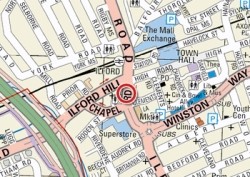 Early Life
Early Life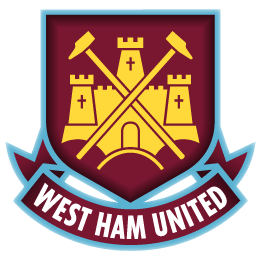 Professional Debut for WHU
Professional Debut for WHU I came back from holiday to discover West Ham fans were going mad. It wasn’t really my fault. I was only a kid, I did what my agent told me to do, then took all the crap for it. The most annoying thing was Luster never had the balls to come out and say what had actually happened. He has killed me. If I ever see him again I’ll give him a good hiding.
I came back from holiday to discover West Ham fans were going mad. It wasn’t really my fault. I was only a kid, I did what my agent told me to do, then took all the crap for it. The most annoying thing was Luster never had the balls to come out and say what had actually happened. He has killed me. If I ever see him again I’ll give him a good hiding.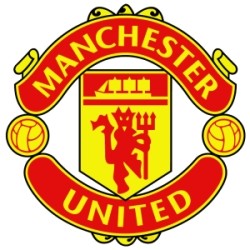 At The Court of King Ferguson
At The Court of King Ferguson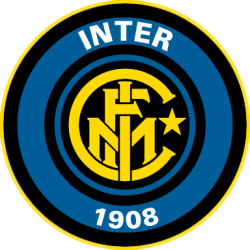 Bye Bye England, Ciao Italia!
Bye Bye England, Ciao Italia! From San Siro to Anfield Road
From San Siro to Anfield Road “We used to tease him about his nickname. He said he didn’t like it but when I first played against him, it was on his car number plate.
“We used to tease him about his nickname. He said he didn’t like it but when I first played against him, it was on his car number plate.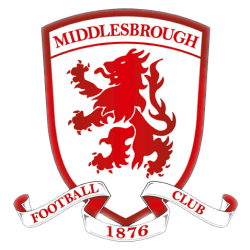 From Stev-O to Boro
From Stev-O to Boro The Call of the Wild: Wolves
The Call of the Wild: Wolves